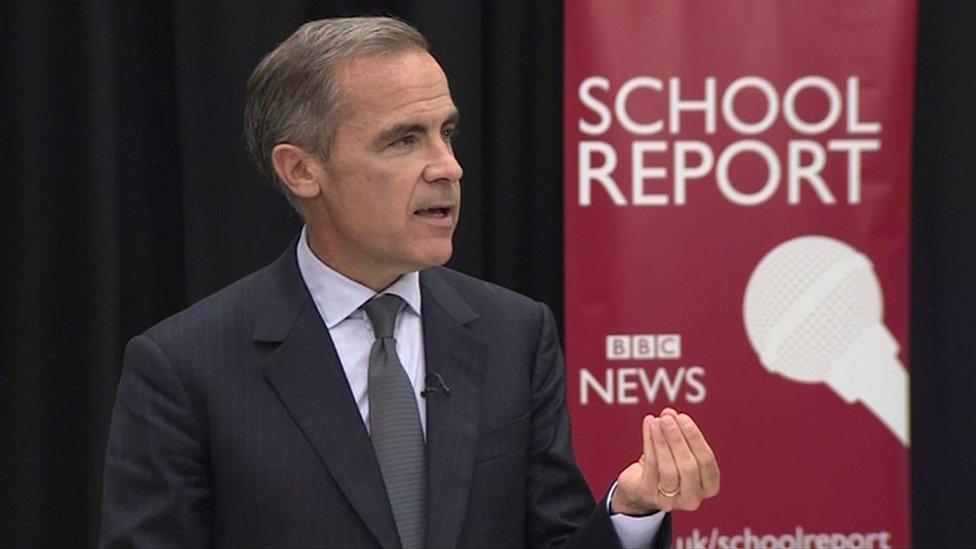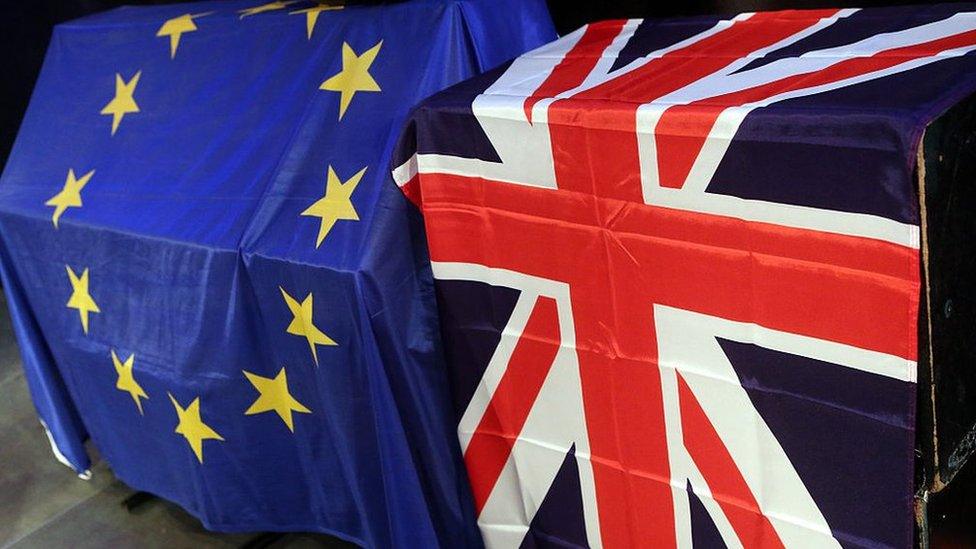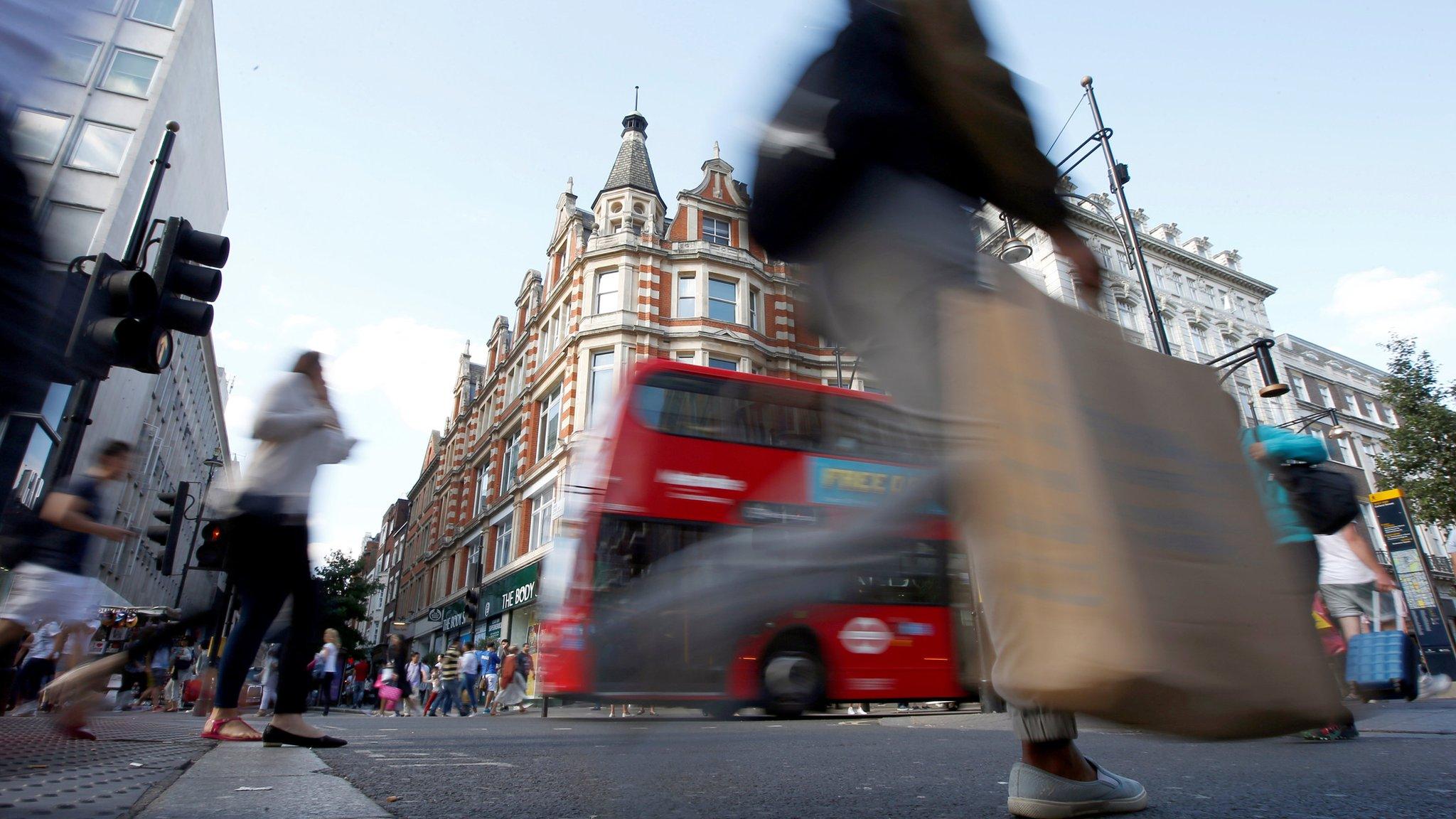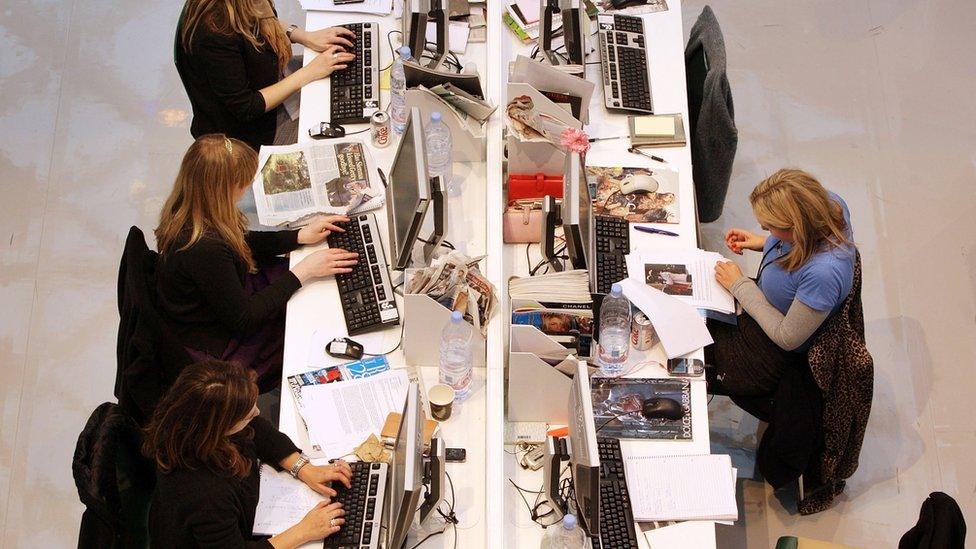Mark Carney describes 'toughest day' as Bank governor
- Published
Pizza, dogs and Bake Off: what Mark Carney really likes
Dealing with the immediate result of the Brexit referendum produced Mark Carney's "toughest day" in his job.
The governor of the Bank of England made his comments when answering questions from children in Coventry as part of the BBC's School Report.
The June referendum produced a narrow majority in favour of the UK leaving the European Union.
Mr Carney said he had been worried about the Bank's complex plans, external for dealing with the referendum aftermath.
"The reason that was a tough day [overnight and on the morning of the referendum result] was not because of the result, but because we had put in place a bunch of plans... for either outcome," he said.
"In order to make sure those plans worked we had to have a huge number of people co-ordinate with people both here in the UK, and with people who do my type of job around the world, and ensure that everyone did the right thing at the right time, so that nobody noticed any ripples as a result of it."
Kamal Ahmed: Chocolate, dogs and Craig David - my school day with the governor
Executing the plan
The Bank of England had put in place contingency plans to ensure that the UK's banking system would work normally, regardless of the referendum result.
The most high profile element involved offering banks the opportunity to borrow up to £250bn extra, both before and after the June vote, to finance their day-to-day operations.
The Bank also offered to lend foreign currency to UK banks, if needed.

Mr Carney said he had been worried that something might go wrong, regardless of how careful the Bank's advanced planning had been.
"You have a plan but you have to put it into place and there's always a bit of concern that it won't work perfectly, you haven't anticipated everything, or that somehow or other it just won't execute the way it should," he explained.
But in the end, nothing went wrong.
"It definitely worked because everything that was supposed to happen, happened," Mr Carney said.
Bake Off and pizza
Questioned on other issues, the governor said if Scotland became independent it would have to give up some of its sovereignty if it wanted to continue using the pound.
"If it were ever an independent country and wanted to continue to share the pound sterling - you need to share some degree of your sovereignty," he said.
He declined to say if he preferred working with David Cameron or Theresa May as Prime Minister.
"They are both very professional, incredibly easy to work with, both focused on making the country better. And that holds for the chancellors that I've worked with both here and in Canada," he said.
And asked about his favourite TV programme, film and food, he nominated the Great British Bake Off, the 1981 war drama Gallipoli, and pizza.
- Published16 September 2016
- Published16 September 2016

- Published15 September 2016

- Published15 September 2016

- Published14 September 2016
